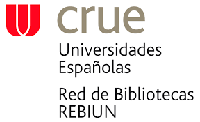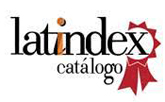About the Journal
Focus and scope
Commons. Revista de Comunicación y Ciudadanía Digital is an electronic journal specialized in the field of Communication, of biannual periodicity, open to the contributions of the international scientific community and edited by the research group Communication and Digital Citizenship of the University of Cadiz (Spain).
Commons' main editorial line is a conception of communication that includes the common, understood as the public and the political. From this point of view, this journal will be particularly attentive to the technopolitical dimension of today's communicative processes in their multiple manifestations.
This publication will contain articles that address some of the main lines of the research group that drives this initiative: Social Advertising and Third Audiovisual Sector; Communication for Development and Social Change; Digital Artistic Practices and Social Thought; Communication Rights.
Peer Review Process
The editorial team will acknowledge receipt of the papers. The articles received in Commons follow a process of evaluation of originals through the peer-review system, known as reciprocal anonymous.
The texts will be evaluated anonymously, at least by two experts of the same –or analogous– academic category, of recognized value in the academic and scientific field of Information and Communication. In the event of a discrepancy in the evaluation, the judgment of a third party evaluator shall be used. Commons welcomes both a stable body of evaluators and ad hoc reviewers when the thematic nature of the text so requires.
A report will be sent to the author containing the decision taken by the evaluators (publishable; publishable with incorporation of modifications; non-publishable). In any case, the following exclusionary criteria will apply: 1) not to deal with the scientific area or topics of the journal; 2) not to respect the established formal criteria.
Sample Peer Review Form: Spanish / English
The revision of the formal aspects or content of the publication proposal will be the exclusive responsibility of the author, who will have to deliver the document of the new corrected version in the term established by the editor of the journal. If this is not done, the work will not be published even if it has been positively evaluated.
Open Access Policy
This journal provides open access to its content, based on the principle that providing the public with free access to research helps to increase global knowledge sharing.
Periodicity
Commons is published biannually. It is edited by the research group "Comunicación y Ciudadanía Digital" of the University of Cadiz and is published in July and December.
Indexation
Commons is indexed in the following databases:
|
CIRC-B (Humanidades) |
||
|
|
 |
|
|
|
||
In the following files you can consult:
External evaluators (2018)
- Adriana Amado (Universidad de Buenos Aires, Argentina) (FLACSO Argentina)
- Santiago Gándara (Universidad de Buenos Aires, Argentina)
- Bernadette Califano (CONICET, Universidad de Buenos Aires, Argentina)
- Yamila Heram (Instituto de Investigaciones Gino Germani - Facultad de Ciencias Sociales, Universidad de Buenos Aires, Argentina)
- Diego de Charras (Universidad de Buenos Aires, Argentina)
- Cecilia Labate (Universidad de Buenos Aires, Argentina)
- Carlos Mangone (Universidad de Buenos Aires, Argentina)
- Santiago Marino (Universidad de Buenos Aires, Argentina)
- Guillermo Mastrini (Universidad Nacional de Quilmes, Argentina)
- Daniel Badenes (Universidad Nacional de Quilmes, Argentina)
- Juan Pagola Carte (Universidad de Deusto, Spain)
- Luzia Alberro (Universidad de Deusto, Spain)
- Mercedes Jiménez García (Universidad de Cádiz, Spain)
- José María Biedma Ferrer (Universidad de Cádiz, Spain)
Ethical commitment
Commons. Revista de comunicación y ciudadanía digital adheres to the Code of Conduct and Best Practice Guidelines for Journal Editors and Code of Conduct for Journals Publishers established by the Committee on Publication Ethics (COPE) (Code of Conduct and Best Practice Guidelines for Journal Editors and Code of Conduct for Journals Publishers). In compliance with this code, the journal will ensure the scientific quality of the publications and the adequate response to the needs of readers and authors.
Authors' Commitments
- Originality and plagiarism: Authors of manuscripts assure that the work is original, that it does not contain parts of other authors or other fragments of work already published by the authors. They also confirm the veracity of the data, i.e. that the empirical data have not been altered to verify hypotheses.
- Multiple and/or repetitive publications: The author should not publish articles in which the same results are repeated in more than one scientific journal. The simultaneous proposal of the same contribution to multiple scientific journals is considered ethically incorrect and reprehensible.
- List of sources: The author must always provide the correct indication of the sources and contributions mentioned in the article.
- Authorship: As for the authorship of the manuscript, the authors guarantee the inclusion of those people who have made a significant scientific and intellectual contribution in the conceptualization and planning of the work as well as in the interpretation of the results and in the writing of the same. Authors should be ranked according to their level of responsibility and involvement.
- Access and retention: If considered appropriate by the publishers, authors of articles should also make available the sources or data on which the research is based, which may be retained for a reasonable period of time after publication and possibly made accessible.
- Conflict of Interest and Disclosure: All authors are required to state explicitly that there are no conflicts of interest that may have influenced the results obtained or the proposed interpretations. Authors should also indicate any agency and/or project funding from which the research article arises.
- Errors in published articles: When an author identifies an important error or inaccuracy in his article, he should immediately inform the editors of the journal and provide them with all the information necessary to list the relevant corrections at the bottom of the same article.
- Responsibility: All authors accept responsibility for what has been written. The authors also undertake that a review of the most current and relevant scientific literature on the subject analysed has been carried out, taking into account the different currents of knowledge in a plural manner.
Commitments of the reviewers
- Contribution to editorial decision: Peer review is a procedure that helps editors make decisions about proposed articles and also allows the author to improve the contribution submitted for publication. The reviewers are committed to a critical, honest, constructive and unbiased review of both the scientific quality and the literary quality of writing in the field of their knowledge and skills.
- Respect for time: A reviewer who does not feel competent in the subject matter of the article to be reviewed or who is unable to complete the evaluation within the scheduled time will immediately notify the editors. The reviewers undertake to evaluate the work in the shortest possible time in order to respect the deadlines.
- Confidentiality: Each assigned manuscript must be considered confidential. Therefore, these texts should not be discussed with others without the express consent of the editors.
- Objectivity: The peer review will be conducted objectively. No personal judgement about the authors of the contributions is considered adequate. The reviewers are obliged to give sufficient reasons for their assessments. Reviewers will submit a full critical report with appropriate references to Commons revision protocol and public regulations for reviewers; especially if it is proposed that the work be rejected. They are obliged to warn editors if substantial parts of the work have already been published or are under review for another publication.
- Text display: The reviewers undertake to indicate precisely the bibliographical references of fundamental works possibly forgotten by the author. The reviewer should also inform the editors of any similarities or overlaps of the manuscript with other published works.
- Conflict of Interest and Disclosure: Confidential information or information obtained during the peer review process should be considered confidential and may not be used for personal purposes Reviewers only review a manuscript if there are no conflicts of interest.
Publishers' Commitments
- Publication decision: The editors shall ensure the selection of the most scientifically qualified and specialist reviewers to give a critical and expert appraisal of the work, with as few biases as possible.
- Honesty: Editors evaluate articles submitted for publication solely on the basis of the scientific merit of the content, without discrimination of race, gender, sexual orientation, religion, ethnicity, nationality, political opinion of the authors.
- Confidentiality: The editors and members of the working group undertake not to disclose information relating to articles submitted for publication to persons other than authors, reviewers and editors. The editors and the Editorial Committee are committed to the confidentiality of the manuscripts, their authors and reviewers, so that anonymity preserves the intellectual integrity of the entire process.
- Conflict of interest and disclosure: The editors undertake not to use the contents of articles submitted for publication in their research without the written consent of the author.
- Respect for Time: Editors are ultimately responsible for complying with time limits for revisions and publication of accepted papers, to ensure rapid dissemination of their results.
Costs for publishing in Commons
Publishing in Commons is free of charge to authors.
Statistics
Vol. 7 No. 1 - June 2018 - Citizen, community and alternative media in Argentina and Spain
Received: 15
Published: 7
Rejected: 8
Rejection rate: 53,33 %.
Vol. 6 No. 2 - December 2017
Received: 11
Published: 7
Rejected: 4
Rejection rate: 36,4 %.
Vol. 6 No. 1 - May 2017
Received: 15
Published: 9
Rejected: 6
Percentage of rejection: 40 %.












